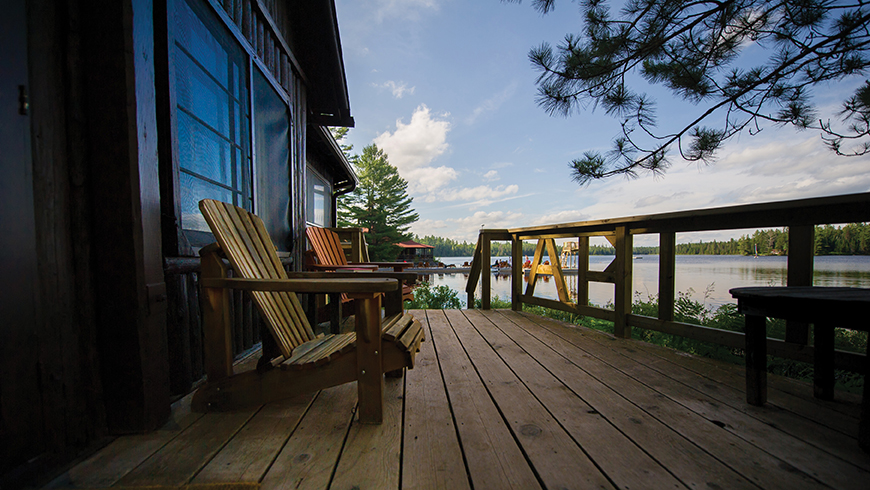Vibrant Living: Should You Rent Out Your Home as a Vacation Rental?
posted
on Wednesday, June 8, 2022
in
Realtor News

There’s an old (and very rude) saying that guests, like fish, begin to smell after three days. But what if the guests are paying, and you don’t have to be around them? For most people, that suggests the sweet, sweet smell of success. But is renting out your home to vacationers really that easy? And is it right for you?
Logistically, the process has never been easier. Airbnb, Vrbo, and other peer-to-peer vacation rental companies provide a platform for hosts to list their properties and travelers to rent them. Through the companies’ apps, individuals can post a listing with descriptions, prices, photos, and booking options for their properties, and the company is paid a percentage of the booking fee.
How much can you make renting your home out? According to one report, Airbnb hosts make an average of $924 a month, but that number can vary from $200 to $10,000 depending on the property, how much they charge, and how many days they book.* And that money isn’t pure profit. There are associated costs and considerations when renting out your home, and you’ll want to start with realistic expectations.
A Note About Property Type
Renting out your primary residence is much different than renting out a vacation home or investment property. If it’s your primary residence or a dedicated guest unit located on your primary residence, consider whether you’re comfortable having strangers in your space. There’s also the issue of occupancy rules that may be built into your loan agreement. Notify your lender before renting out your property to ensure you’re not breaking any laws.
The Business of Vacations
When you look at the prices for vacation rentals on Airbnb, Vrbo, and other sites, it may seem like you’re sitting on a goldmine, and all you need to do is list your property and watch the cash roll in. But before you start spending your imaginary money, carefully consider the ins and outs of the process.
- Understand the rules. In addition to rules imposed by the service you’re renting through, some cities and states have laws governing vacation rentals. You may need a business license or have to pay occupancy taxes (like hotels). Homeowner associations and co-ops also have their own rules, and as mentioned above, your lender may have some restrictions, so before opening your doors as a host, make sure you’re in compliance with all these regulations.
- Know what renters expect. Guests will likely expect amenities like air conditioning, reliable Wi-Fi, laundry facilities, convenient parking, and more. Research your competition and be honest in describing your property. Disappointed guests tend to leave bad reviews, and that can cripple your business.
- Be ready for emergencies. If a faucet is dripping or the air conditioner goes out, your guests will expect immediate repairs. Make sure you are prepared to call in a plumber, electrician, appliance repair specialist, or handyman on short notice.
- Do the math. Income from renting out your home is likely taxable, and you will have to pay any host fees charged by the service you use. You’ll need to maintain a constant inventory of amenities like kitchen essentials, towels, soap, and toilet paper, and your utility bills may go up from guests cranking the air conditioner or leaving lights on all day. Finally, whether you clean your house yourself or hire a service, you may be paying extra to keep your home clean and sanitized.
- Make sure you’re covered. Unfortunately, it’s a given that guests may damage your home, and your home insurance policy might not cover the cost of repairs. Airbnb and Vrbo provide insurance, but before you welcome your first guest, make sure you understand what is and isn’t covered by this insurance. You may need to get a special policy.
Setting the Stage
The first thing you’ll need to do if you decide to become a host is to declutter and make any cosmetic changes needed to make your home competitive in your market. Think about what you would expect if you were a renter, and look at your house with a critical eye to determine if bathroom fixtures need to be changed out, walls painted, or carpets cleaned.
If a makeover is needed, neutral colors are a safe choice, and you’ll want to tailor your décor to your home’s location or style. A beach theme is great for a waterfront cottage but not so much for a renovated barn in Iowa! Scour thrift stores, flea markets, and yard sales for interesting accent pieces and furniture that you’re not emotionally attached to.
A common thing all guests will look for is comfort, so you may need to replace mattresses and invest in high quality bedding and towels if you want to score the best reviews, which will be key to attracting more renters.
Finally, you’ll need to protect your personal information and valuables. Items of sentimental value like photos and heirlooms, and documents with sensitive information (bills, tax returns, etc.), need to be secured, either in a locked safe or closet within your home or at an external location.
Once your home is picture perfect, you’ll want some perfect pictures to show it off, so get some high-quality photos for your listing. It may be worth paying a photographer to get the shots you need.
Looking for Another Option?
If you’re ready to get into the vacation rental marketplace but don’t want to open your own home to guests, purchasing a rental property may be an option. Of course, you’ll want to start by thinking about things to consider before buying a vacation home.
The final question in the vacation rental process is, of course, where you’ll go while guests enjoy your home. Maybe a vacation is the answer!
* Source: Earnest, “How Much Are People Making From the Sharing Economy?” November 22, 2021.